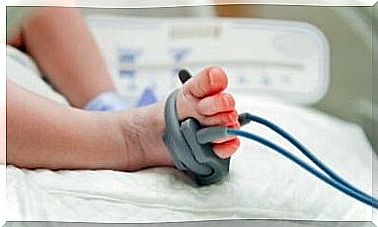How To Know That Your Teenager Is Exhausted And Stressed

An adult is not the only one who may feel exhausted and stressed. Adolescents today are stressed a lot, more than in previous generations. They may not have the necessary strategies to deal with these types of situations. This, in turn, makes them sad and even depressed.
Signs that your child is exhausted and stressed
As a parent, it is important that you pay attention to these warning signs that could indicate that your child is exhausted and stressed. In these cases, it would be important to help him cope with these feelings so that he learns to manage them in the best possible way.
- Insomnia. Something happens to your teenager when he doesn’t get a good night’s sleep. Teach your kids to limit screen time on devices before going to bed to ensure they get a good night’s rest.
- More anxiety. The inability to relax can be extremely frustrating, especially during downtime. If your teenager is generally restless and anxious, burnout could be the cause.

- Change of eating habits. It may be from overeating or restricting eating, but a change in eating habits can mean that your teen is feeling emotionally drained. Consuming too many unhealthy foods can cause ongoing mood swings and lead to additional types of undesirable behavior.
- Risky actions. If your teenager is experimenting with drugs or alcohol for the first time, or if you suspect that he may be using substances more frequently, he may be using them as a means of escaping his stress.
- Impulsive behavior or emotional. Rather than blaming hormones for immediate mood swings, look a little deeper, because burnout could be the culprit. If your teen is experiencing intense periods of anger, frustration, sadness, or other emotions, it’s probably time to talk about stress.
How to Help Exhausted and Stressed Teens
Now that you know some of the characteristics of an exhausted teenager, learning how to help is critical to making sure they start to feel good again. One strategy many parents are successful with is asking if they know of anyone in their class who shows symptoms of burnout.
Addressing issues with your child in this way allows them to respond openly without fear of a consequence, such as, “I can’t tell my mother that I’m too tired because I’ll lose my phone at night.”
Giving your adolescent a chance to talk about symptoms and then talking to you about how they would handle that symptom is the best way to keep them engaged without risking emotional withdrawal.

If your teen admits that a friend is frantically trying to balance his personal life with his academic one, give him strategies to address the situation. Are there some activities that can be reduced? Should I turn off the screens earlier to be more rested to continue participating in these activities? Have you created a schedule so you can see how much time you have free or how to make the best use of it?
Rather than criticizing your child too much for his behavior, in case he shows any of the warning signs above, use it as an opportunity to talk about time management, prioritize, and de-stress.
Better manage time for the exhausted and stressed adolescent
One of the most important ways parents can use to try to ease the pressure on their teen is to help them make decisions about how to manage their time. Being a teenager is difficult. There are millions of new experiences and many pressures , along with a very limited amount of overall life experience.
Share with your children the necessary measures so that they reorganize their lives and that, in this way, they learn to manage their time without the need for them to reach exhaustion. Even if it is telling them through how their friend should do it. You can also explain your ways of doing things, in case it serves them, in some way, in their daily life.
Explaining your own examples to them will bring them closer to you emotionally and, then, they will feel understood and accepted. Remember that it is very important not to judge or criticize them; Remember that your children need your help, not that you be the judge of their life.










